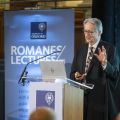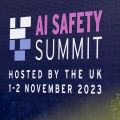World leaders still need to wake up to AI risks, say leading experts ahead of AI Safety Summit
Leading AI scientists are calling for stronger action on AI risks from world leaders, warning that progress has been insufficient since the first AI Safety Summit in Bletchley Park six months ago.
Then, the world’s leaders pledged to govern AI responsibly. However, as the second AI Safety Summit in Seoul (21-22 May) approaches, twenty-five of the world's leading AI scientists say not enough is actually being done to protect us from the technology’s risks. In an expert consensus paper published today in Science, they outline urgent policy priorities that global leaders should adopt to counteract the threats from AI technologies.
Professor Philip Torr, Department of Engineering Science, University of Oxford, a co-author on the paper, says: “The world agreed during the last AI summit that we needed action, but now it is time to go from vague proposals to concrete commitments. This paper provides many important recommendations for what companies and governments should commit to do.”
World’s response not on track in face of potentially rapid AI progress
According to the paper’s authors, it is imperative that world leaders take seriously the possibility that highly powerful generalist AI systems---outperforming human abilities across many critical domains---will be developed within the current decade or the next. They say that although governments worldwide have been discussing frontier AI and made some attempt at introducing initial guidelines, this is simply incommensurate with the possibility of rapid, transformative progress expected by many experts.
Current research into AI safety is seriously lacking, with only an estimated 1-3% of AI publications concerning safety. Additionally, we have neither the mechanisms or institutions in place to prevent misuse and recklessness, including regarding the use of autonomous systems capable of independently taking actions and pursuing goals.
World-leading AI experts issue call to action
In light of this, an international community of AI pioneers has issued an urgent call to action. The co-authors include Geoffrey Hinton, Andrew Yao, Dawn Song, the late Daniel Kahneman; in total 25 of the world’s leading academic experts in AI and its governance. The authors hail from the US, China, EU, UK, and other AI powers, and include Turing award winners, Nobel laureates, and authors of standard AI textbooks.
This article is the first time that such a large and international group of experts have agreed on priorities for global policy makers regarding the risks from advanced AI systems.
Urgent priorities for AI governance
The authors recommend governments to:
- establish fast-acting, expert institutions for AI oversight and provide these with far greater funding than they are due to receive under almost any current policy plan. As a comparison, the US AI Safety Institute currently has an annual budget of $10 million, while the US Food and Drug Administration (FDA) has a budget of $6.7 billion.
- mandate much more rigorous risk assessments with enforceable consequences, rather than relying on voluntary or underspecified model evaluations.
- require AI companies to prioritise safety, and to demonstrate their systems cannot cause harm. This includes using “safety cases” (used for other safety-critical technologies such as aviation) which shifts the burden for demonstrating safety to AI developers.
- implement mitigation standards commensurate to the risk-levels posed by AI systems. An urgent priority is to set in place policies that automatically trigger when AI hits certain capability milestones. If AI advances rapidly, strict requirements automatically take effect, but if progress slows, the requirements relax accordingly.
According to the authors, for exceptionally capable future AI systems, governments must be prepared to take the lead in regulation. This includes licensing the development of these systems, restricting their autonomy in key societal roles, halting their development and deployment in response to worrying capabilities, mandating access controls, and requiring information security measures robust to state-level hackers, until adequate protections are ready.
AI impacts could be catastrophic
AI is already making rapid progress in critical domains such as hacking, social manipulation, and strategic planning, and may soon pose unprecedented control challenges. To advance undesirable goals, AI systems could gain human trust, acquire resources, and influence key decision-makers. To avoid human intervention, they could be capable of copying their algorithms across global server networks. Large-scale cybercrime, social manipulation, and other harms could escalate rapidly. In open conflict, AI systems could autonomously deploy a variety of weapons, including biological ones. Consequently, there is a very real chance that unchecked AI advancement could culminate in a large-scale loss of life and the biosphere, and the marginalization or extinction of humanity.
Stuart Russell OBE, Professor of Computer Science at the University of California at Berkeley and an author of the world’s standard textbook on AI, says: “This is a consensus paper by leading experts, and it calls for strict regulation by governments, not voluntary codes of conduct written by industry. It’s time to get serious about advanced AI systems. These are not toys. Increasing their capabilities before we understand how to make them safe is utterly reckless. Companies will complain that it’s too hard to satisfy regulations—that "regulation stifles innovation." That’s ridiculous. There are more regulations on sandwich shops than there are on AI companies.”
Notes for editors:
The paper ‘Managing extreme AI risks amid rapid progress’ has been published in Science today, Monday 20 May 2024: http://www.science.org/doi/10.1126/science.adn0117
The following lists interview availability, a list of notable co-authors, and additional quotes from the authors.
Interviews
- Jan Brauner, University of Oxford
- jan.m.brauner@gmail.com
- +49 177 9106783
- Sören Mindermann, University of Oxford, Mila - Quebec AI Institute, Université de Montréal,
Notable co-authors:
- The world’s most-cited computer scientist (Prof. Hinton), and the most-cited scholar in AI security and privacy (Prof. Dawn Song)
- China’s first Turing Award winner (Andrew Yao).
- The authors of the standard textbook on artificial intelligence (Prof. Stuart Russell) and machine learning theory (Prof. Shai Shalev-Schwartz)
- One of the world’s most influential public intellectuals (Prof. Yuval Noah Harari)
- A Nobel Laureate in economics, the world’s most-cited economist (Prof. Daniel Kahneman)
- Department-leading AI legal scholars and social scientists (Lan Xue, Qiqi Gao, and Gillian Hadfield).
- Some of the world’s most renowned AI researchers from subfields such as reinforcement learning (Pieter Abeell, Jeff Clune, Anca Dragan), AI security and privacy (Dawn Song), AI vision (Trevor Darrell, Phil Torr, Ya-Qin Zhang), automated machine learning (Frank Hutter), and several researchers in AI safety.
Additional quotes from the authors:
Philip Torr, Professor in AI, University of Oxford:
- "I believe if we tread carefully the benefits of AI will outweigh the downsides, but for me one of the biggest immediate risks from AI is that we develop the ability to rapidly process data and control society, by government and industry. We could risk slipping into some Orwellian future with some form of totalitarian state having complete control."
Dawn Song: Professor in AI at UC Berkeley, most-cited researcher in AI security and privacy:
- “Explosive AI advancement is the biggest opportunity and at the same time the biggest risk for mankind. It is important to unite and reorient towards advancing AI responsibly, with dedicated resources and priority to ensure that the development of AI safety and risk mitigation capabilities can keep up with the pace of the development of AI capabilities and avoid any catastrophe.”
Yuval Noah Harari, Professor of history at Hebrew University of Jerusalem, best-selling author of ‘Sapiens’ and ‘Homo Deus’, world-leading public intellectual:
- "In developing AI, humanity is creating something more powerful than itself, that may escape our control and endanger the survival of our species. Instead of uniting against this shared threat, we humans are fighting among ourselves. Humankind seems hell-bent on self-destruction. We pride ourselves on being the smartest animals on the planet. It seems then that evolution is switching from survival of the fittest, to extinction of the smartest."
Jeff Clune, Professor in AI at University of British Columbia and one of the leading researchers in reinforcement learning:
- “Technologies like spaceflight, nuclear weapons and the Internet moved from science fiction to reality in a matter of years. AI is no different. We have to prepare now for risks that may seem like science fiction – like AI systems hacking into essential networks and infrastructure, AI political manipulation at scale, AI robot soldiers and fully autonomous killer drones, and even AIs attempting to outsmart us and evade our efforts to turn them off.”
- “The risks we describe are not necessarily long-term risks. AI is progressing extremely rapidly. Even just with current trends, it is difficult to predict how capable it will be in 2-3 years. But what very few realize is that AI is already dramatically speeding up AI development. What happens if there is a breakthrough for how to create a rapidly self-improving AI system? We are now in an era where that could happen any month. Moreover, the odds of that being possible go up each month as AI improves and as the resources we invest in improving AI continue to exponentially increase.”
Gillian Hadfield, CIFAR AI Chair and Director of the Schwartz Reisman Institute for Technology and Society at the University of Toronto:
- “AI labs need to walk the walk when it comes to safety. But they’re spending far less on safety than they spend on creating more capable AI systems. Spending one-third on ensuring safety and ethical use should be the minimum.”
- “This technology is powerful, and we’ve seen it is becoming more powerful, fast. What is powerful is dangerous, unless it is controlled. That is why we call on major tech companies and public funders to allocate at least one-third of their AI R&D budget to safety and ethical use, comparable to their funding for AI capabilities.”
Sheila McIlrath, Professor in AI, University of Toronto, Vector Institute:
- “AI is software. Its reach is global and its governance needs to be as well.”
- “Just as we've done with nuclear power, aviation, and with biological and nuclear weaponry, countries must establish agreements that restrict development and use of AI, and that enforce information sharing to monitor compliance. Countries must unite for the greater good of humanity.”
- “Now is the time to act, before AI is integrated into our critical infrastructure. We need to protect and preserve the institutions that serve as the foundation of modern society.”
Frank Hutter, Professor in AI at the University of Freiburg, Head of the ELLIS Unit Freiburg, 3x ERC grantee:
- “To be clear: we need more research on AI, not less. But we need to focus our efforts on making this technology safe. For industry, the right type of regulation will provide economic incentives to shift resources from making the most capable systems yet more powerful to making them safer. For academia, we need more public funding for trustworthy AI and maintain a low barrier to entry for research on less capable open-source AI systems. This is the most important research challenge of our time, and the right mechanism design will focus the community at large to work towards the right breakthroughs.”
About the University of Oxford
Oxford University has been placed number 1 in the Times Higher Education World University Rankings for the eighth year running, and number 3 in the QS World Rankings 2024. At the heart of this success are the twin-pillars of our ground-breaking research and innovation and our distinctive educational offer.
Oxford is world-famous for research and teaching excellence and home to some of the most talented people from across the globe. Our work helps the lives of millions, solving real-world problems through a huge network of partnerships and collaborations. The breadth and interdisciplinary nature of our research alongside our personalised approach to teaching sparks imaginative and inventive insights and solutions.
Through its research commercialisation arm, Oxford University Innovation, Oxford is the highest university patent filer in the UK and is ranked first in the UK for university spinouts, having created more than 300 new companies since 1988. Over a third of these companies have been created in the past five years. The university is a catalyst for prosperity in Oxfordshire and the United Kingdom, contributing £15.7 billion to the UK economy in 2018/19, and supports more than 28,000 full time jobs.
 New analysis of archaeological data reveals how agriculture and governance have shaped wealth inequality
New analysis of archaeological data reveals how agriculture and governance have shaped wealth inequality
 Cambridge victorious in Women's and Men's Boat Races 2025
Cambridge victorious in Women's and Men's Boat Races 2025
 Expert Comment: Ethical and legal challenges of uterus transplants in Mexico
Expert Comment: Ethical and legal challenges of uterus transplants in Mexico
 AI ethics are ignoring children, say Oxford researchers
AI ethics are ignoring children, say Oxford researchers
 Romanes Lecture: ‘Godfather of AI’ speaks about the risks of artificial intelligence
Romanes Lecture: ‘Godfather of AI’ speaks about the risks of artificial intelligence
 Expert comment: Oxford AI experts comment on the outcomes of the UK AI Safety Summit
Expert comment: Oxford AI experts comment on the outcomes of the UK AI Safety Summit